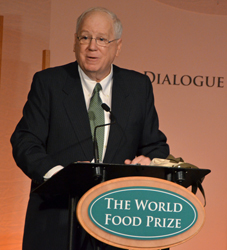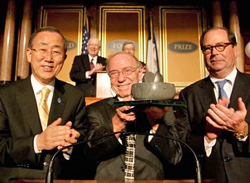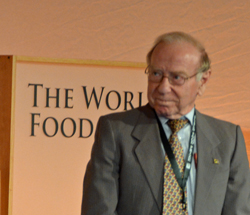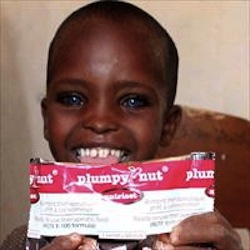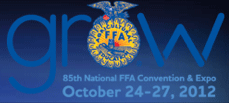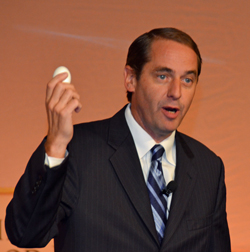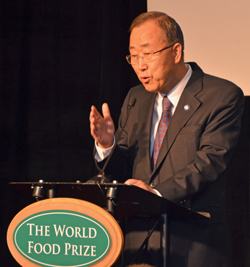One of the last panels of the World Food Prize Borlaug Dialogue on Friday was on the importance of food productivity to meet tomorrow’s demand and much of the focus was on increasing animal protein in the world diet.
 Moderated by Margaret Zeigler, Executive Director of the Global Harvest Initiative, the panel included Elanco President Jeff Simmons, who we already heard from, as well as Chicago Council on Global Affairs Senior Fellow Robert Thompson, American Council for Fitness and Education CEO Susan Finn and Honduran farmer and professor Isidro Ochoa.
Moderated by Margaret Zeigler, Executive Director of the Global Harvest Initiative, the panel included Elanco President Jeff Simmons, who we already heard from, as well as Chicago Council on Global Affairs Senior Fellow Robert Thompson, American Council for Fitness and Education CEO Susan Finn and Honduran farmer and professor Isidro Ochoa.
Thompson talked about why trade barriers need to be addressed in addition to increasing food productivity, Finn discussed the importance of protein in the diet, and Ochoa related his experiences in Honduras in increasing productivity, especially for dairy farmers. “We came together with best management practices, better health practices and feeding programs,” said Ochoa, noting that dairy producers are now delivering 8,000-12,000 liters of milk where it averaged about 50 liters just 14 years ago.
Listen to presentations by three panelists here: Panel on Increasing Productivity
Thompson, who is also currently on the faculty of Johns Hopkins University as a visiting scholar, really stressed the importance of opening up trade. “We need to reduce barriers to international agricultural trade so that those countries that have no hope of feeding themselves are able to take advantage of free movement of product through the international markets,” he said, noting that is most important for countries in south and east Asia.
Listen to my interview with Thompson here: Interview with Bob Thompson
Susan Finn says addressing hunger globally includes good nutrition for the most vulnerable times in life, in the womb and from the ages of 1-5. “It’s more than calories,” she noted. “It’s the quality of those calories,” and that means protein.
“Nutritionists talk about nutrient density and that means a lot of nutrients in a relatively small amount of food,” she said, adding that the egg that Jeff Simmons talked about on the panel is a perfect example of a nutrient dense food that contains nine essential amino acids, iron, zinc and more. “I think egg is probably the most perfect protein source.”
During an interview with Susan, I also asked her what she thought about the new school lunch guidelines – find out what she said here: Interview with Susan Finn
View the World Food Prize Photo Album here.
AgWired coverage of the World Food Prize is sponsored by Elanco
